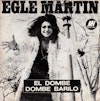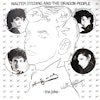As the release of director Michael Lindsay-Hogg’s 1970 documentary Let It Be—edited to make it look like the final undoing of the band—captured the public’s imagination just as the Beatles were actually calling it quits, and George Harrison’s multi-album solo debut, All Things Must Pass, was released on Apple Records the same year, you could almost forget that the foursome and their team had been, and still were, running a record label with the likes of James Taylor, Badfinger, the Modern Jazz Quartet, and the integral and innovative Billy Preston. But Peter Jackson’s epic reworking of the Let It Be sessions, for his 2021 documentary series Get Back, reminded us of the force of nature that Billy Preston was.
Before linking up with the Fab Four, the self-taught, Houston-born child-prodigy keyboardist was already a star on secular and sacred stages with gigs alongside Mahalia Jackson, Nat King Cole, Ike Turner, Ray Charles, and Sam Cooke. When playing organ in Little Richard’s band during a 1962 tour of Hamburg, Preston befriended the Beatles and their manager, Brian Epstein, and later became a revolving planet in their universe when it came to recording tracks during their Let It Be/Get Back sessions, such as “Don’t Let Me Down” and “I’ve Got a Feeling,” as well as Abbey Road’s “Something” and “I Want You (She’s So Heavy).” Along with being part of the Beatles’ renowned 1969 rooftop concert in London, and getting proper credit for “Get Back” (“The Beatles with Billy Preston” is the only time a co-performer shared billing with the boys), the righteous organist and electric piano specialist was this close to becoming an actual Beatle (at John Lennon’s urging) until Paul McCartney shot down the idea as too much trouble for all concerned.
No matter. Member or not, Preston is responsible for giving the Beatles much-needed soul and spine when it came to the quartet’s bluesier grooves and huskier edge. And for a time, the Beatles—in particular, George Harrison—were crucial in steering Preston’s solo career with Harrison producing two Apple label–released albums, 1969’s That’s the Way God Planned It and 1970’s Encouraging Words.
There is much that fascinates about Encouraging Words (just re-released on vinyl via Apple Corps Ltd./Capitol/UMe), the least of which is that Preston covered Harrison classics “All Things Must Pass” and “My Sweet Lord” just weeks before the Quiet Beatle’s three-LP epic dropped, and to far bolder, richer effect. Blasphemy maybe, considered the near-biblical status of Harrison’s deck-clearing solo effort. But listen to what Preston does—not in opposition, but rather as a cool repetition of theme, or alternative—to Harrison’s signature classics, and you’ll hear a rainbow’s worth of colors and tones compared to George’s blacks and grays.
With a studio ensemble that included Harrison, Eric Clapton, Klaus Voormann, Delaney Bramlett, Ringo Starr, Carl Radle, Bobby Keys, Jim Gordon, the Edwin Hawkins Singers, and members of the Temptations’ and Sam & Dave’s touring bands, Preston churned out a densely arranged, gospel-funk album touched by God, goodly spirits, and era-appropriate rootsy rock vibes.
In fact, rather than preach, Preston shares, conversationally, what it means to be at one with his Sweet Lord on holy rollers such as “Sing One for the Lord,” the album’s title track, and the sacred, jazzy tone of the Harrison-penned prayer, “My Sweet Lord.” The journey that started by Preston and Harrison on 1969’s That’s the Way God Planned It chattily continues onward through the pair’s “Sing One” cowrite, and Preston’s own “Encouraging Words,” with Harrison’s spine-tingling guitar leads and the leader’s classically inspired piano parts swirling in the background like a hot windstorm. Say what you want about the glory of the Beatles’ sound, and its intricate, airtight arrangements courtesy of producer George Martin. What Preston does is loosen that tautness, adding needed heat and swivel to (Lennon and) McCartney’s “I’ve Got a Feeling” (before the Beatles had a chance to release it) and Harrison’s “All Things Must Pass.”
Part of that comes from Billy Preston’s happy cackle of a voice and his non-purist way with rock and rhythm (there’s a reason that he was not only the Fifth Beatle, but also the sixth member of the Rolling Stones).
With Preston’s vocals a mirthful mix of confident swagger and humbled humility, the immensity of his original compositions “You’ve Been Acting Strange” and “The Same Thing Again” are driven, passionately and painfully, by what Clapton would famously call “blues power.” The singer’s mighty mournful wind, a similarly sad rush to the blues that come before it, gets a red-hot makeover during Preston’s own “Right Now” and “Use What You Got,” with more rhythm than blues to the mix. And ending the album on songwriter R. L. Williams’s “You’ve Been Acting Strange” is indeed that—something spooky, theatrical, odd, and even old-fashioned in the face of Encouraging Words’ (then) new-fangled holy, soulful rock.
That all this would be quickly overshadowed, barely a year later—with the release of Preston’s first A&M album, I Wrote a Simple Song, its foinky instrumental smash, “Outa-Space,” and the fall of the Apple label—left all traces of Encouraging Words in the dust.
That changes now.


